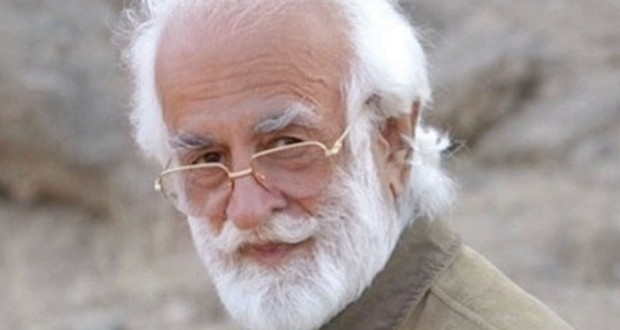Shawn Forbes
On July 12th 1927 a Legendary Baloch Leader was born in Barkhan, Balochistan; Nawab Akbar Khan Bugti son of Mehrab Khan Bugti and grandson of Shabaz Khan Bugti. Despite opportunity to live a high & glorious life of luxury, Akbar Khan Bugti chose to live the hard life in the mountains, sacrificing everything for the sake of the Baloch Nation. In spite of his age, he had the heart of a lion, and bravely fought the Occupational State until his dying breath. Nawab Akhbar Khan Bugti has inspired the entire Baloch Nation to rise up and demand freedom from tyranny and oppression.
As a child Akbar Bugti eagerly dedicated himself to the pursuit of education. After receiving his primary education in his native Dera Bugti, Akbar Bugti later went on to obtain a higher education at the University in London.
When Akbar Bugti was only 13 years old his father the Bugti tribal chief Mehrab Khan Bugti passed away. Despite a number of potential successors, the Bugti tribe rejected all others and installed Akbar Khan Bugti as their new chieftain. Since his inauguration as Bugti Chief in 1939 until his martyrdom on August 26th 2006; Nawab Akbar Khan Bugti devoted his life to the advocacy of Baloch civil rights.
A brilliant intellect and natural leader; Nawab Akbar Khan Bugti inevitably rose through the political ranks in Balochistan. Although Akbar Khan Bugti’s early political career was tumultuous, he always held public favor amongst the Baloch people. In the early 1970’s the Federal Government appointed Nawab Akbar Khan Bugti as Governor of Balochistan.
As Governor, Akbar Khan Bugti made the advocacy of Baloch self-determination his highest priority. He demanded the Pakistani government agree to a policy of non-interference in internal Baloch politics.
Eight months after Akbar Khan Bugti was appointed Governor the Pakistani military began a ruthless crack down in Balochistan. When the Federal Government refused to cease military aggression towards Baloch citizens, Akbar Khan Bugti resigned his post as Governor.
After Akbar Khan Bugti resigned his post, he went into exile in London UK to study at Oxford University. In the late 1980’s Akbar Khan Bugti returned to Balochistan to participate in the 1988 elections as a candidate under the BNM ticket. Akbar Khan Bugti was then elected as Chief Minister of Balochistan.
Two years later he left the BNM party & established the Jamhuri Watan Party. Under the JWP banner Nawab Akbar Khan Bugti was elected to the Balochistan National Assembly on three occasions. In June of 1992 Akbar Khan Bugti’s son Salal Bugti was assassinated on Jinnah rd. by target killers in Quetta. After the death of his son, Nawab Akbar Khan Bugti left the political arena and returned to his native Dera Bugti.
Soon after the 1999 Coup by General Pervez Musharraf, the National Assembly was dissolved. It was during this time that Nawab Akbar Khan Bugti began to lay the foundation of today’s struggle for liberation from the totalitarian Pakistani Regime.
In 2005 a female doctor was violently raped by an officer of the Pakistani Army at a Military Base near Sui. Dera Bugti Chieftain Nawab Akbar Khan Bugti demanded justice for the the rape victim, but President Musharraf refused to pursue a case against the implicated officer.
Instead, Musharraf launched a full scale military assault on July 17th of 2005. After heavy bombardment from gunship helicopters, artillery, and mortars, Akbar Khan Bugti’s home village was reduced to smoldering ruins. Many local homes, shops, schools, and places of worship were completely destroyed in the attack. 20 innocent Bugti villagers were killed in the massacre, many of whom were Women & Children.
After the 2005 massacre in Dera Bugti, the then 79 year old Nawab Akbar Khan Bugti could no longer bear to witness the suffering of his people. Nawab Akbar Khan Bugti bravely ventured into the mountains to take up arms against the Tyrannical Pakistani State.
On August 26th 2006 in the Tatany Mountains, Pakistan Armed Forces launched a fierce military operation against Nawab Akbar Khan Bugti. Gunship Helicopters, Mortars, and Fighter Jets bombarded the mountain range with chemical weapons. Nawab Akbar Khan Bugti and 32 of his comrades became martyrs that day.
After learning of the death of Nawab Akbar Khan Bugti, hundreds of students of Balochistan University in Quetta began protesting the brutal massacre of Nawab Akbar Khan Bugti and his companions. In the following days, the number of protestors grew to thousands. The occupational state responded by deploying Army Rangers and Paramilitary Forces to end the protests and impose a curfew throughout Quetta. The ensuing chaos resulted in widespread rioting and a swift crackdown in which security forces arrested over 450 protestors.
A dedicated student and a brilliant intellect, Nawab Akbar Khan Bugti became a shining beacon of hope in a world of darkness. Despite State persecution and perpetual injustice, Nawab Akbar Khan Bugti dared to stand up for Baloch rights and challenge Pakistan’s inhuman policies. Nawab Akbar Khan Bugti spent most of his life in pursuit of peaceful means to achieve liberty and freedom for the Baloch, exhausting every possible avenue of reasonable negotiation within the occupational state system.
Published in The Balochistan Point on October 17, 2014
Disclaimer: The views expressed in this article are those of the author and The Balochistan Point not necessarily agrees with them.
 Balochistan Point Voice of Nation
Balochistan Point Voice of Nation




